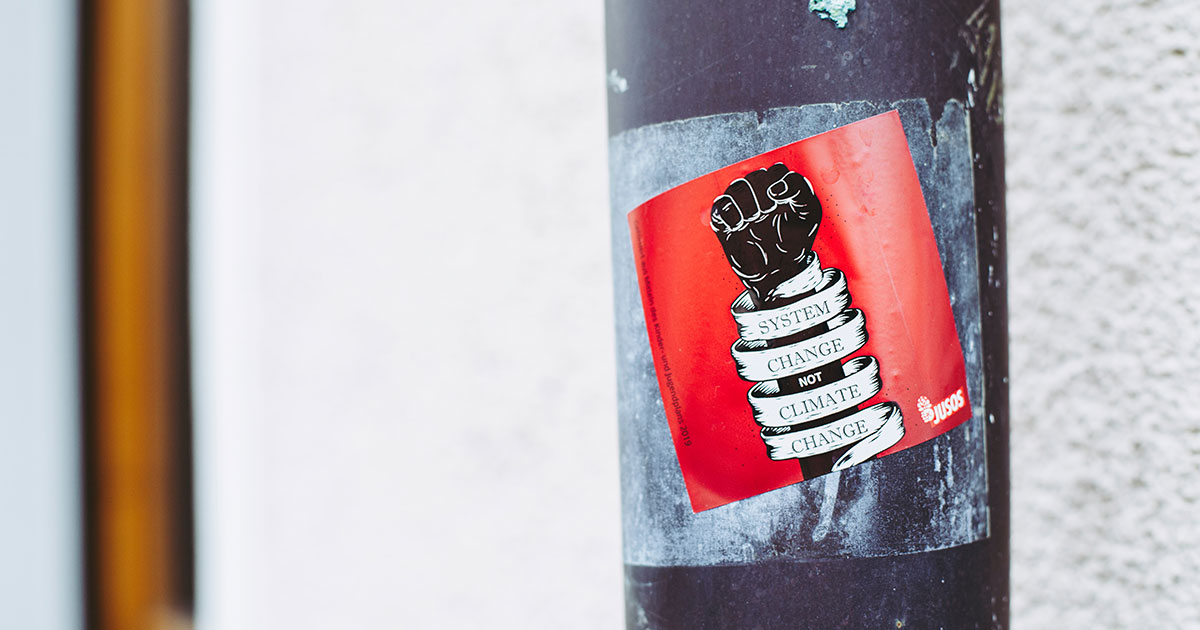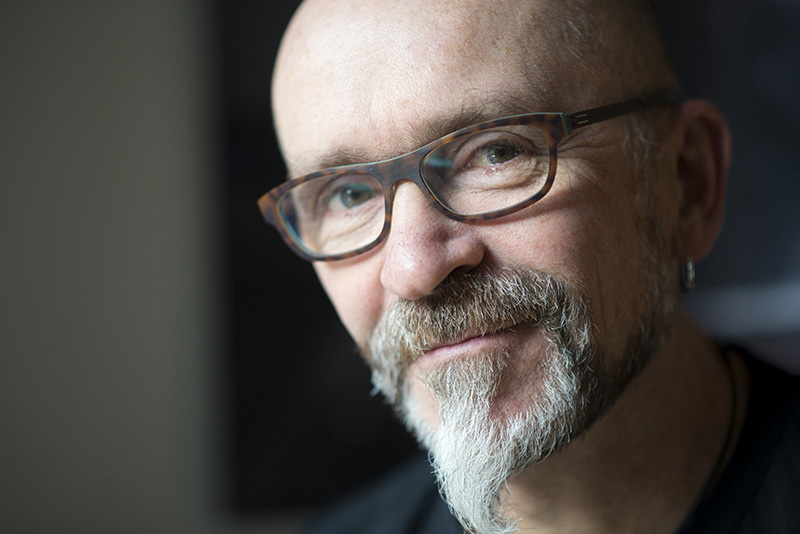SOAPBOX
★ ★ ★ ★
Pandemics and Social Resilience

By Mike Hembury
“Looks like we’re in for nasty weather”
Creedence Clearwater Revival
I heard the other day that, in terms of human predispositions, there are two types of reaction in a crisis: fight-or-flight, or batten down the hatches. As someone who has been involved in political movements for most of my adult life, I have always thought of myself as belonging to the former category. More of the activist type, if you will.
But now, as the tectonic plates of our world grind up against each other, producing a global social earthquake the like of which hasn’t been seen since the Second World War, I find myself strangely quiet, quietened, and listening.
Listening to statistics like: 26 million people unemployed in the USA at the time of writing.

Listening to predictions like: 265 million people will be facing starvation in the coming year. Fifty percent of this figure is due to the effects of the corona virus.
Listening to projections like: 5 million dead in India in a worst-case scenario with a corona mortality rate of 4%. Or 3.3 million projected deaths in Africa. By way of comparison, in mid-March, Italy’s mortality rate stood at 10%.
And of course, listening to the familiar, and terrifying, background noise of relentless climate change.
You don’t need to be some kind of Cassandra to know that none of this is good.
To tell you the truth, I find it difficult to process information like this. Not intellectually, but emotionally. As a parent, and a grandparent, I don’t even want to go there. Every part of me is screaming that this way monsters lie, that the likelihood of global, pandemic-induced social catastrophe, mass deaths and cataclysmic climate breakdown just took a giant leap forward.
Meanwhile: work from home, pay the rent, continue to function.
I am a textbook case for ongoing traumatic stress disorder. But then again, if you are at all aware of what is going on in the world, so are you.
At weekends I like to take some time out, go for a walk in the woods. Lockdown restrictions are being eased here, so we’re allowed to do it. But even something so innocuous is hard to enjoy, when you know that now, in April, the ground is already tinder-dry. That the third year of Central European drought is already so advanced that new trees cannot take root in desiccated soil, that entire forests are expected to die in the decades to come.
But these are times of enjoying it while you can. A new study by the US journal Nature predicts that coming climate-induced shocks to bio-diversity will be more like driving off a cliff than a gentle downward slope. In other words, we are looking at multiple, synchronous, systemic shocks, with knock-on effects for agriculture and production of basic foodstuffs. If you think our societies are currently capable of handling that, then think how well the corona crisis is going.
Broadly speaking, countries that have largely rational, socially-oriented systems of disease prevention and control, coupled with free health care access and paid sick leave, have fared reasonably well. Others, where neo-liberal ideology counts for more than human lives, and leaders tout injecting disinfectant as a possible cure, have seen an avoidable crisis turn into a public health catastrophe.
Go check out the stats – particularly the case/fatality ratio – for Ireland, Taiwan, Finland, Germany, Denmark, South Korea and compare them with the US, UK, Italy, Spain. Not to mention countries in Asia and South America that are blighted by poverty and barely functioning health care systems.
Neo-liberal countries lose every time. Poor countries lose. Poor people lose.
Nobel prize-winning economist Joseph Stiglitz has likened the US response to the coronavirus pandemic to that of a “Third World” country:
Right now, we are learning the hard way that society’s social wealth – its healthcare provision, its unemployment provision, its systems of care and housing – are a measure of its resilience to systemic shock.
We are learning that we need universal healthcare, full employment, a guaranteed basic income, access to accommodation, sanitation, food and clean drinking water as a basic human right. We need regenerative power sources, sustainable agriculture and a living environment.
We need a planetary future as a basic human right.
Meanwhile, large swaths of the world’s transport, industrial and commercial infrastructure remain shut down, mothballed for the duration of the corona crisis.
Instead of promising trillions to the stock market, and billions to airline and auto industry bailouts, governments should be investing in social resilience. Now is the time to demand that any future investment comes with green strings attached. Now is the time to raise taxes on the rich. Now is the time to re-tool our economies.
This is not really a revolutionary program. This ought to be basic social democratic stuff. But if the experience of the climate movement over past decades has taught us anything, it is that the common good is anathema to the pathologically asocial wealth accumulation tendencies of the hard right super-rich.
Demands like clean water, clean air, healthcare for all, have become revolutionary.
Globally, our societies are at a watershed moment. We can let the super-rich push on towards greater planetary destruction, greater inequality, greater injustice for the broad mass of Earth’s inhabitants. Their program is one of high-tech, autocratic, Darwinist feudalism. In pandemic terms, it means death for the poor. In terms of the climate emergency, it means death for us all.
The alternative is to demand the social. Demand the common good. Demand the socialization of healthcare, power utilities, housing. We have to organize in whatever ways we can. We have to be ready to take to the streets to make sure that money and resources go where they are needed most.
Don’t get me wrong: I’m not saying break out of lockdown just yet. Right now, we need all the discipline we can muster to maintain physical distancing and stay safe. But socially, we need to come together. We need to get creative with our resistance.
If you’re into online, virtual protests, now is the time to do it.
But we need to find ways of staying safe, and being out on the streets.
Calls are growing louder for a general strike to underline our right to exist, and to basic health and safety whilst working for the profit system.
Capitalist ultras are not going away of their own accord. We need to turn this thing around, the sooner the better.
In the blink of an eye, we have seen the capitalist world drive off a cliff, one of many, looming into view. Right now, we are falling, mid-flight, hurtling towards the ground.
Things are going to get broken.
We need to be resilient, social, organized, and determined if we are going to pick up the pieces.

Mike Hembury is an Anglo-Berliner originally from Portland, England. He’s a writer, translator, musician, coder, sailor, environmentalist and guitar nerd in no particular order. He is the author of New Clone City, nominated as a “Hot Berlin Read” by Exberliner magazine. You can follow Mike on Twitter here: twitter.com/schnappz
























I’m with you bro.